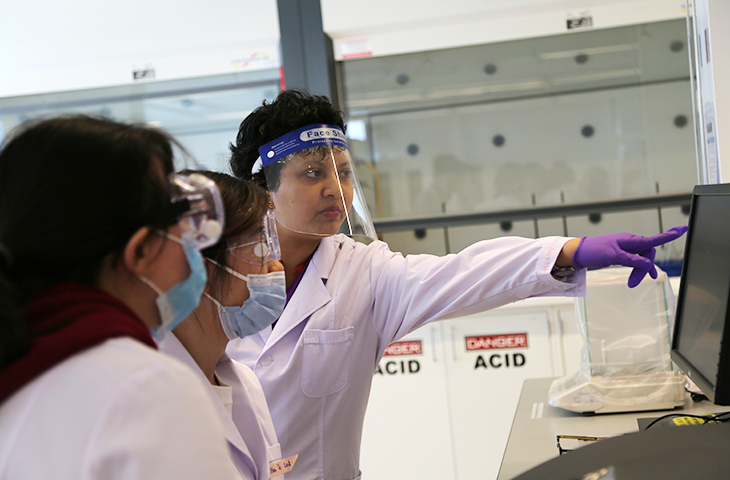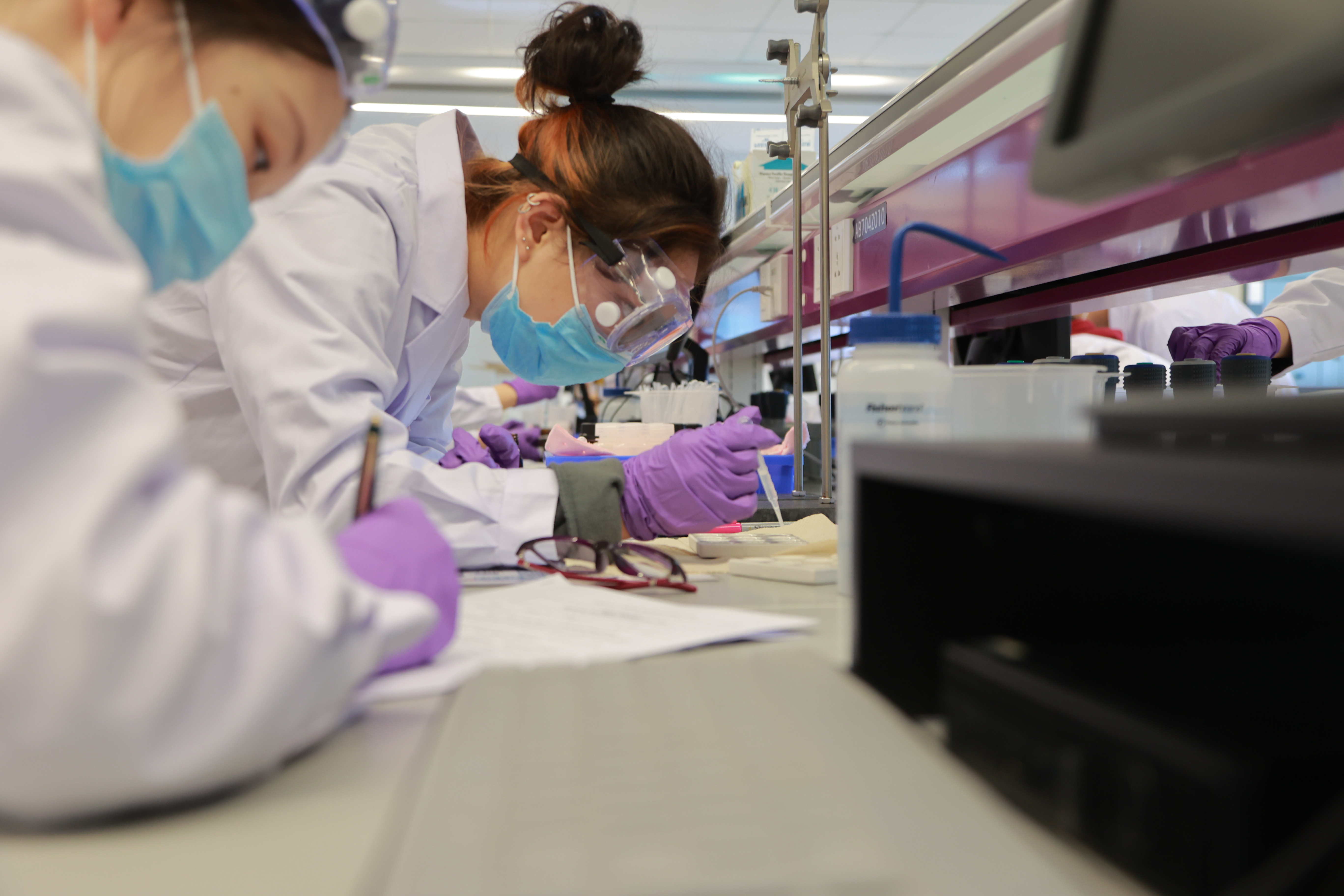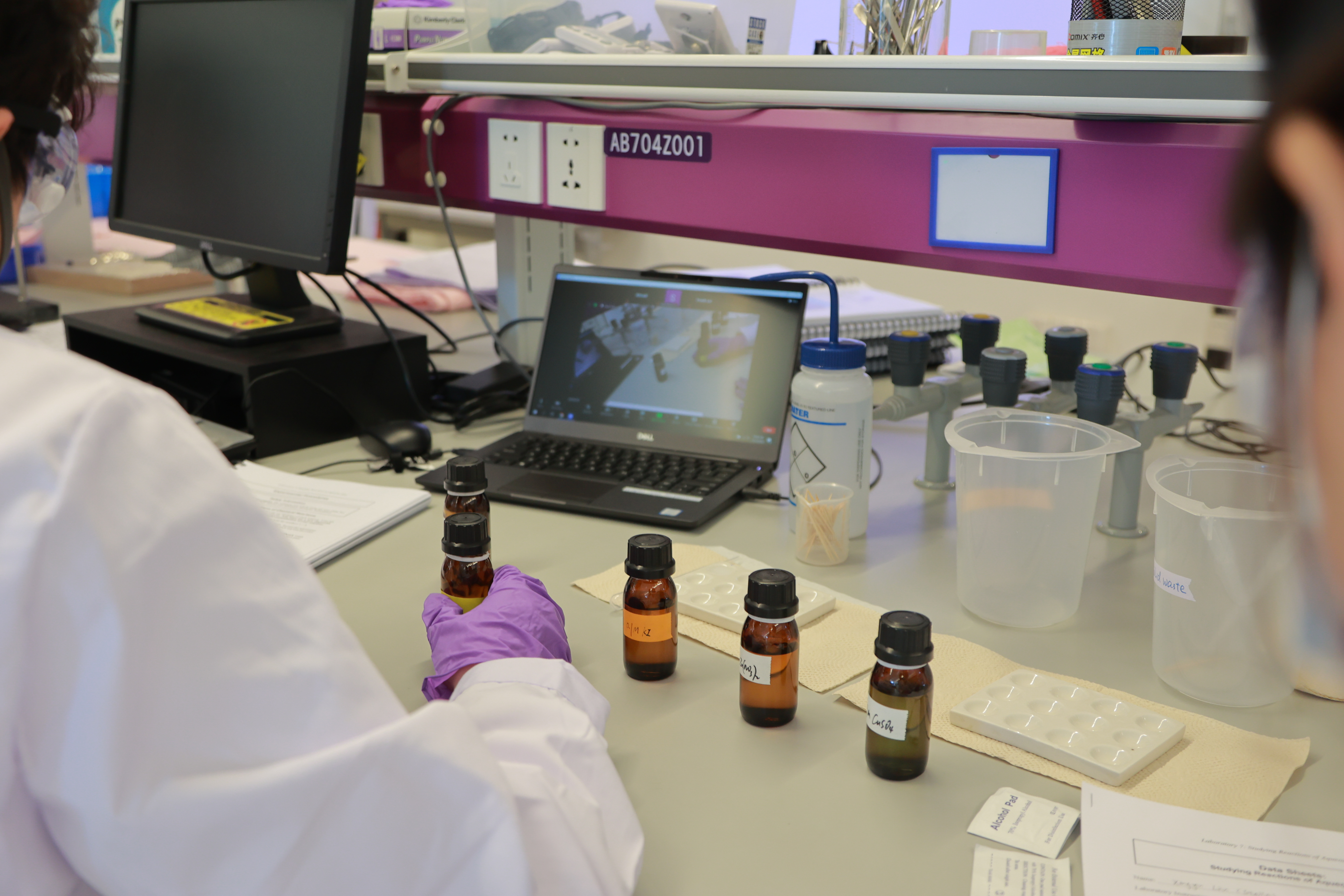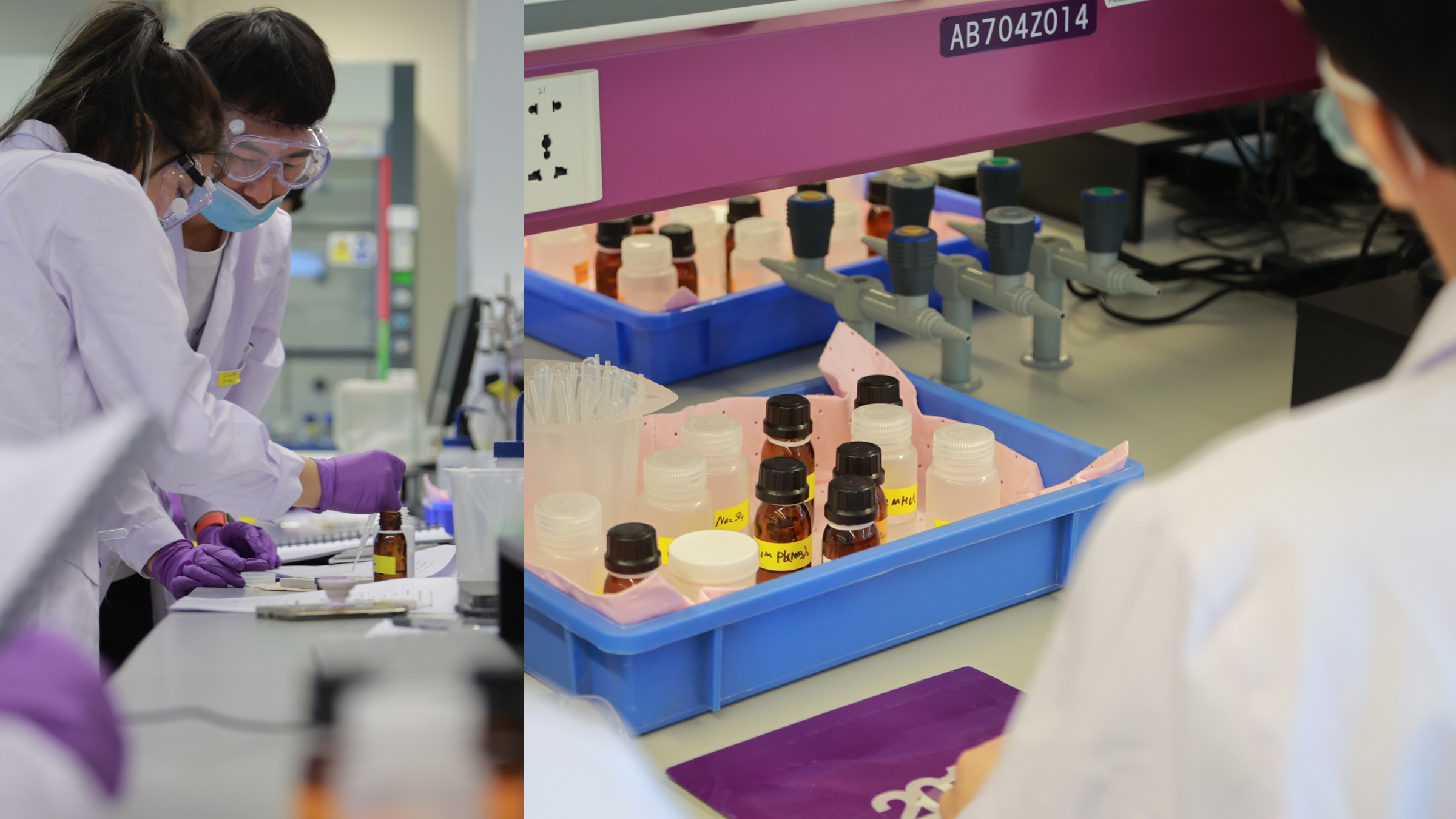
Professor Amrita Pal’s chemistry course, “Energy and the Environment” is a class that is open to all students, regardless of their majors or previous science knowledge. Since she began teaching it in the fall of 2019, the course has been very popular: a nearly full roster every semester, with over fifty students from every major and class year represented.

Professor Amrita Pal
NYU Shanghai requires all students to take two categories of science courses: “Experimental Discovery in the Natural World” and “Science, Technology, and Society” as part of its core curriculum. Professor Pal’s class fulfills the Experimental Discovery requirement and introduces students to the world of chemistry, environmental science, and public policy through weekly lectures and lab experiments. “The goal of the course is to make students more aware - to give them the experience of science even if they have no previous background,” Pal says. “They are undergraduates. If they are interested, who knows, at this point they might be interested so much that they will pursue something related.”
This semester, students from majors as diverse as math, sociology, French, economics, history, and business are enrolled in the class along with sophomores and freshmen who are still undecided on their majors.

Pal, a trained chemical engineer who completed her PhD at the National University of Singapore, joined NYU Shanghai in 2019, with an extensive background in conducting research at the intersections of chemistry, biology, physics and engineering. Before coming to Shanghai, she had completed research examining organic contaminants present in surface water, for example, the pesticides, pharmaceuticals, hormones, sunscreens, and other organic impurities found in surface water. She is especially interested in examining how chemicals interact with the environment and the implications for human health, which is reflected on her syllabus.
The chance to teach “Energy and the Environment” at NYU Shanghai has been “a dream come true.” She says she especially loves teaching students from non-science backgrounds, and helping them to understand complex topics. “It is my challenge to instigate an interest for science in them, to not make them feel too overwhelmed and at the same time, throw challenges, push them to bring out their best; make them confident,” she said. “I simply enjoy it when I am successful in making them understand a difficult quantitative analysis or a complex concept.”
Pal’s course meets twice a week for lectures and once a week for a two-hour lab. Labs are intensive, and aim to help students to see chemistry in their lives around them. Before entering the lab, students must don white lab coats, gloves and goggles as they often work with toxic chemicals. Because of the pandemic, students must also wear masks during the lecture and lab classes. Experiments range from building batteries (galvanic cells) to understanding the concept behind photography through the chemical properties of light. In one particularly difficult but exciting lab, the students produced hydrogen from water using PV cells and then used that hydrogen to run a fan using fuel cell technology. For some students, who, due to COVID-19 travel restrictions are zooming in from around the world, Pal and her lab assistants demonstrate the lab experiment over zoom.

Professor Pal demonstrates the experiment for students over Zoom.
Lyu Xin ‘23, a Business and Finance major who studied liberal arts in her high school and had no science background before enrolling in the chemistry class this fall, says she has enjoyed the class so far. “The experiments are the most exciting part of the class. There’s a really strong connection between what we’re learning in class and what we see in everyday life,” she says. “Basically, we are studying the environment around us through chemistry - the pollutants in the air we breathe, ozone depletion, and where our energy comes from.”
“I want students to be able to apply what we talk about in whatever field they choose,” says Pal. “Like when we talk about water pollution or ozone layer depletion - in the long run, we need to understand why it is happening and how to curb it. With that, we can define policies and make reasonable changes to prevent it from happening in the future. Our course material is very interdisciplinary.”
Richard Pang ‘23, a Data Science major chose to take the class to balance out his data science-heavy course load this fall. “Professor Pal is training us to understand the world around us better through scientific logic,” says Pang. “I’ve really enjoyed learning chemistry through focusing on real problems, like thinking about how heat is converted to fuel and the efficiency of cars.”

Students prepare chemicals used for the Aqueous Ions lab.
NYU Shanghai’s Dean of Arts and Sciences, Maria Montoya, notes the importance of students taking classes beyond their comfort zones. “Taking classes outside of your major teaches you resilience, as you are forced to do tasks that you might not be as successful at if you just stayed in your comfort zone. You might have to work a little harder, and you might not succeed in the ways you’ve always succeeded before,” she says. “The idea is to make students a little uncomfortable by engaging with new materials and hopefully mastering a new area of learning.”
Professor Pal plans to offer the Energy and Environment class again in the Spring semester. New Experimental Discovery classes will include a neuroscience course, “Perception and the Brain” and a psychology course, “While You Were Sleeping.”
Learn more about majoring in Chemistry at NYU Shanghai here.
Learn about NYU Shanghai's Chemistry PhD program here.

